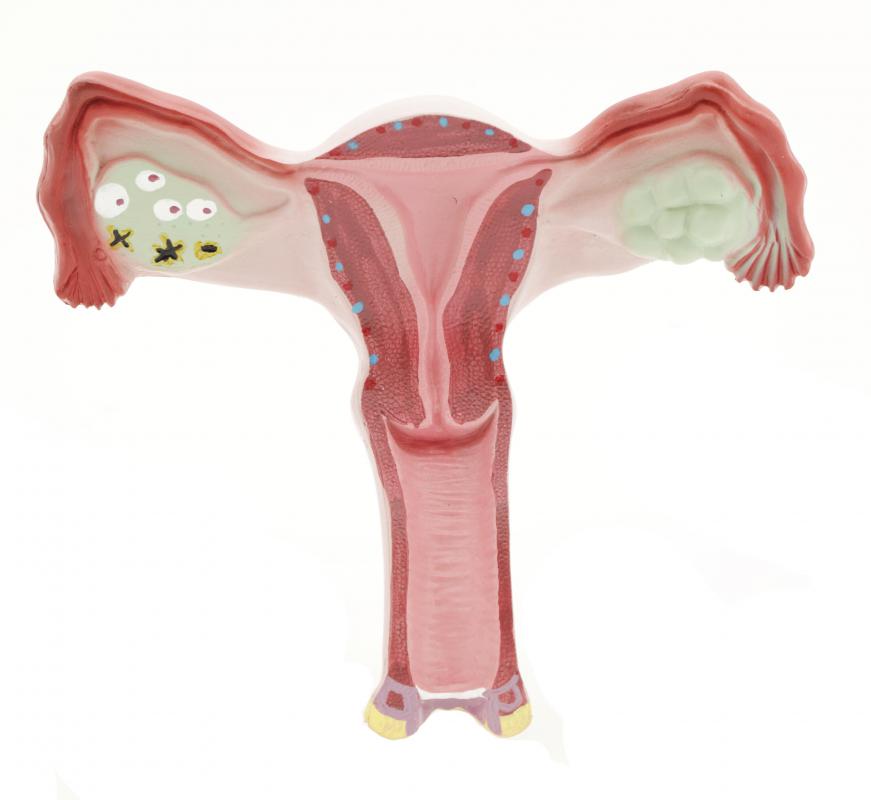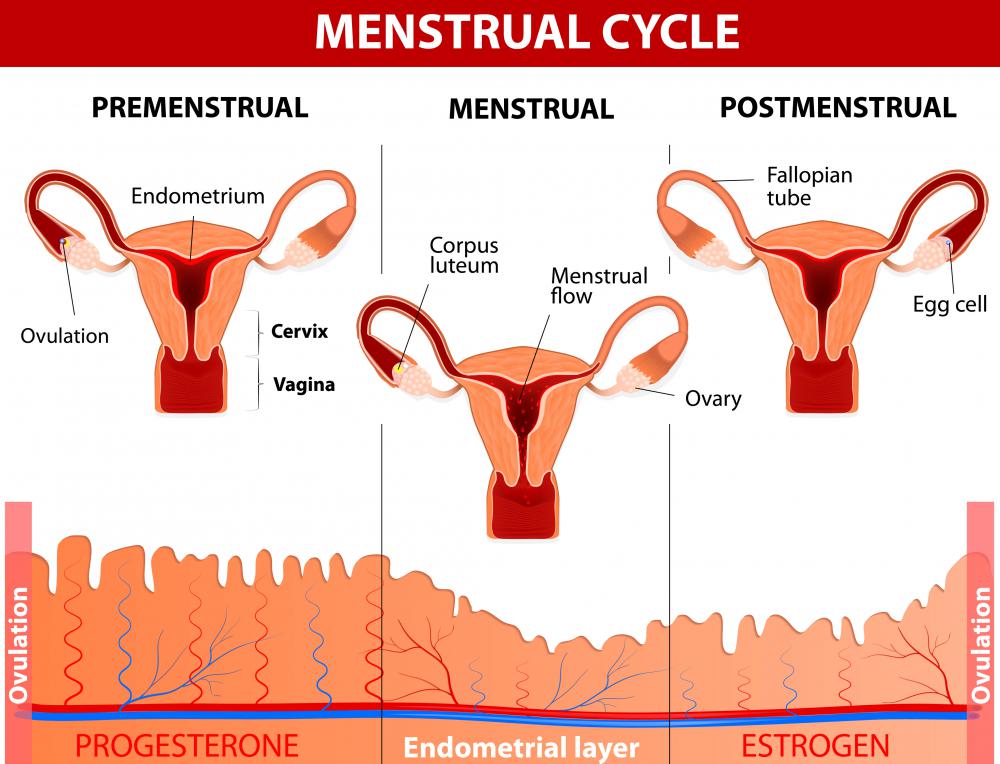At WiseGEEK, we're committed to delivering accurate, trustworthy information. Our expert-authored content is rigorously fact-checked and sourced from credible authorities. Discover how we uphold the highest standards in providing you with reliable knowledge.
What is the Anovulatory Cycle?
An anovulatory cycle is a menstrual cycle where ovulation does not take place, causing menstrual bleeding without the deposition of a new egg. This condition can occur for a variety of reasons and can create some health concerns. A doctor can evaluate a patient to determine possible causes and provide treatment. Often, the first doctor to diagnose the condition is a fertility specialist exploring the reasons why a couple cannot get pregnant.
Patients with an anovulatory cycle experience the menstrual cycle on an abnormal schedule. The cycle may be longer or shorter than usual and menstrual bleeding is sometimes heavy and prolonged, creating a risk of anemia. The lack of ovulation is usually not detectable to the patient, but people will notice the irregularities in their cycles and may seek attention for that without being aware that they have an anovulatory cycle.

Hormone imbalances are a common cause, as are thyroid conditions, eating disorders, polycystic ovaries, and perimenopause. A doctor can run some blood tests to check on hormone levels and other potential causes of concern, and will also perform a physical examination. The patient's age, general level of health, and medical history are all considerations when narrowing down the cause of an anovulatory cycle. There is a small chance a cancerous growth may be responsible for the irregularities. The doctor will want to conduct a thorough workup to definitively rule this out before moving on to treatment options, as some treatments could make the cancer grow faster.

A doctor will recommend treatment if there are health concerns or the patient is attempting to get pregnant and wants fertility treatment. Providing the patient with hormones to regulate the cycle and trigger ovulation is the usual method for addressing irregular cycles. The doctor also needs to address the underlying cause. In cases where patients are actually entering menopause, the focus of treatment is on providing supportive care to help the patient transition more comfortably, rather than on trying to correct the issue.

People with a history of menstrual irregularities can be at increased risk of having an anovulatory cycle and should make sure their doctors have a complete medical history. This can be helpful for conducting a patient evaluation and may potentially spare a patient some uncomfortable and unnecessary tests to explore possible causes. Issues like recent stress can also be contributors, and it is possible that the doctor may simply recommend resting and waiting to see if the menstrual cycle normalizes on its own.
AS FEATURED ON:
AS FEATURED ON:














Discussion Comments
I had sex during my second day of menstruation and my menstruation stopped from that second day. what could be the cause? I also started feeling pain like cramps and back pain. Could it be pregnancy?
Post your comments